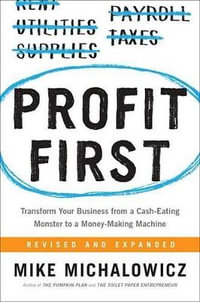The Digital Hand, Volume 2, is a historical survey of how computers and telecommunications have been deployed in over a dozen industries in the financial, telecommunications, media and entertainment sectors over the past half century. It is past of a sweeping three-volume description of how management in some forty industries embraced the computer and changed the American economy. Computers have fundamentally changed the nature of work in America. However it is difficult to grasp the full extent of these changes and their implications for the future of business. To begin the long process of understanding the effects of computing in American business, we need to know the history of how computers were first used, by whom and why. In this, the second volume of The Digital Hand, James W. Cortada combines detailed analysis with narrative history to provide a broad overview of computing's and telecomunications' role in over a dozen industries, ranging from Old Economy sectors like
finance and publishing to New Economy sectors like digital photography and video games. He also devotes considerable attention to the rapidly changing media and entertainment industries which are now some of the most technologically advanced in the American economy. Beginning in 1950, when commercial applications of digital technology began to appear, Cortada examines the ways different industries adopted new technologies, as well as the ways their innovative applications influenced other industries and the US economy as a whole. He builds on the surveys presented in the first volume of the series, which examined sixteen manufacturing, process, transportation, wholesale and retail industries. In addition to this account, of computers' impact on industries, Cortada also demonstrates how industries themselves influenced the nature of digital technology. Managers, historians and others interested in the history of modern business will appreciate this historical analysis of digital
technology's many roles and future possibilities in an wide array of industries. The Digital Hand provides a detailed picture of what the infrastructure of the Information Age really looks like and how we got there.
Industry Reviews
"Cortada is ideally if not uniquely qualified to approach this important topic. ... This is an important attempt at synthesis, and Cortada is to be commended both for taking it on and for what he has managed to accomplish. The material is exhaustively researched and extensively footnoted. Charts and tables help to summarize the data, and the occasional photograph reminds us that technologies and business are not abstract concepts but are human activities."
--Michael N. Geselowitz, Enterprise & Society
"Cortada is one of the premier-and most prolific-of computer historians and covers nooks and crannies that many others miss. Given the present centrality of computers in virtually everything, Cortada is becoming the recorder of a very important transformation in American (and most world) business. --Communication Booknotes Quarterly
"I fully recommend this book. It is a must-read for anyone wanting to get a feel for how technology adoption interacts with development and for how decision-making and company-interaction patterns have fostered or hindered the introduction of computers in a particular application and at a particulsar time." --Gerald Friedland,IEEE Annals of the History of Computing
"Cortada is ideally if not uniquely qualified to approach this important topic. ... This is an important attempt at synthesis, and Cortada is to be commended both for taking it on and for what he has managed to accomplish. The material is exhaustively researched and extensively footnoted. Charts and tables help to summarize the data, and the occasional photograph reminds us that technologies and business are not abstract concepts but are human activities."
--Michael N. Geselowitz, Enterprise & Society
"Cortada is one of the premier-and most prolific-of computer historians and covers nooks and crannies that many others miss. Given the present centrality of computers in virtually everything, Cortada is becoming the recorder of a very important transformation in American (and most world) business. --Communication Booknotes Quarterly
"I fully recommend this book. It is a must-read for anyone wanting to get a feel for how technology adoption interacts with development and for how decision-making and company-interaction patterns have fostered or hindered the introduction of computers in a particular application and at a particulsar time." --Gerald Friedland,IEEE Annals of the History of Computing
























